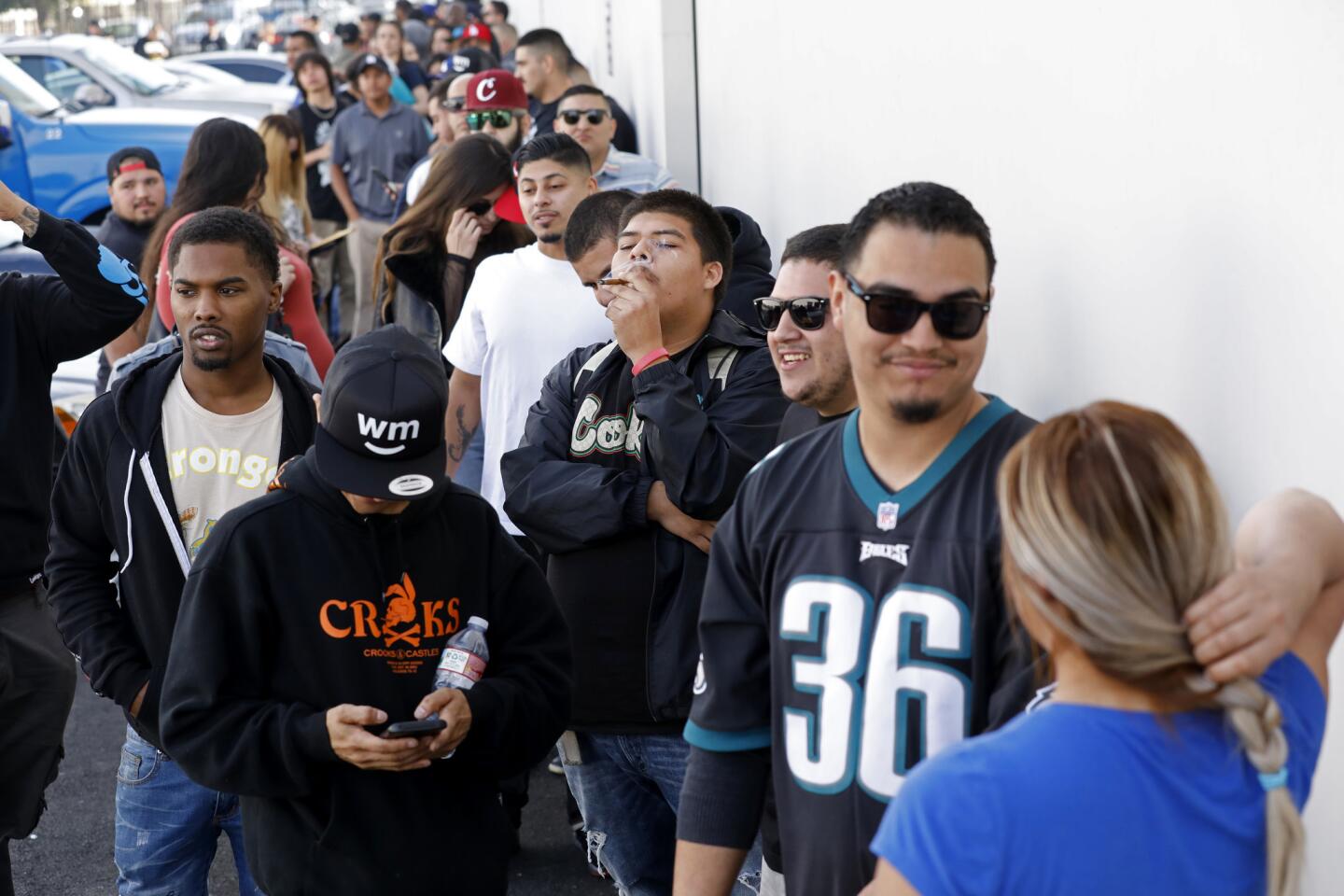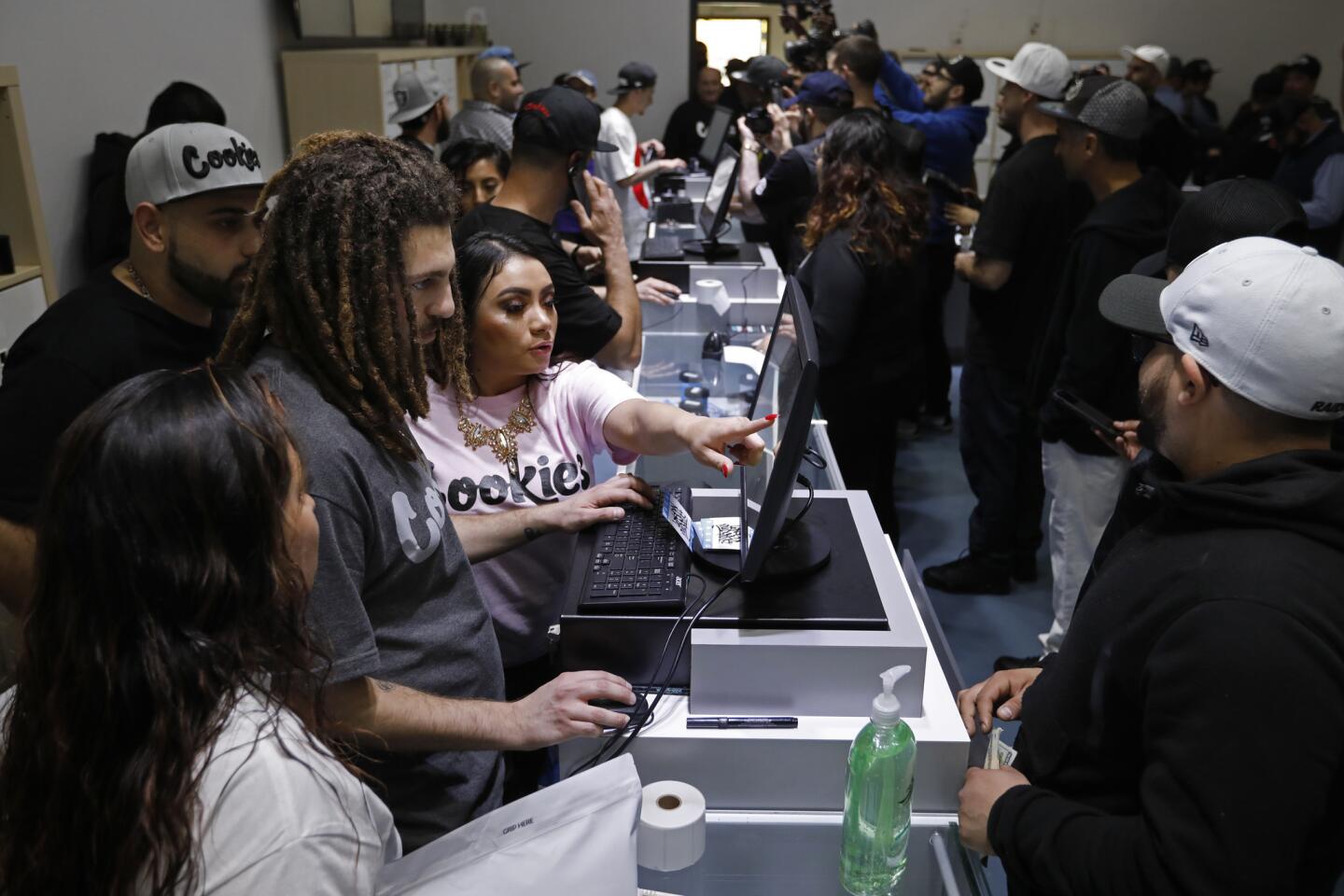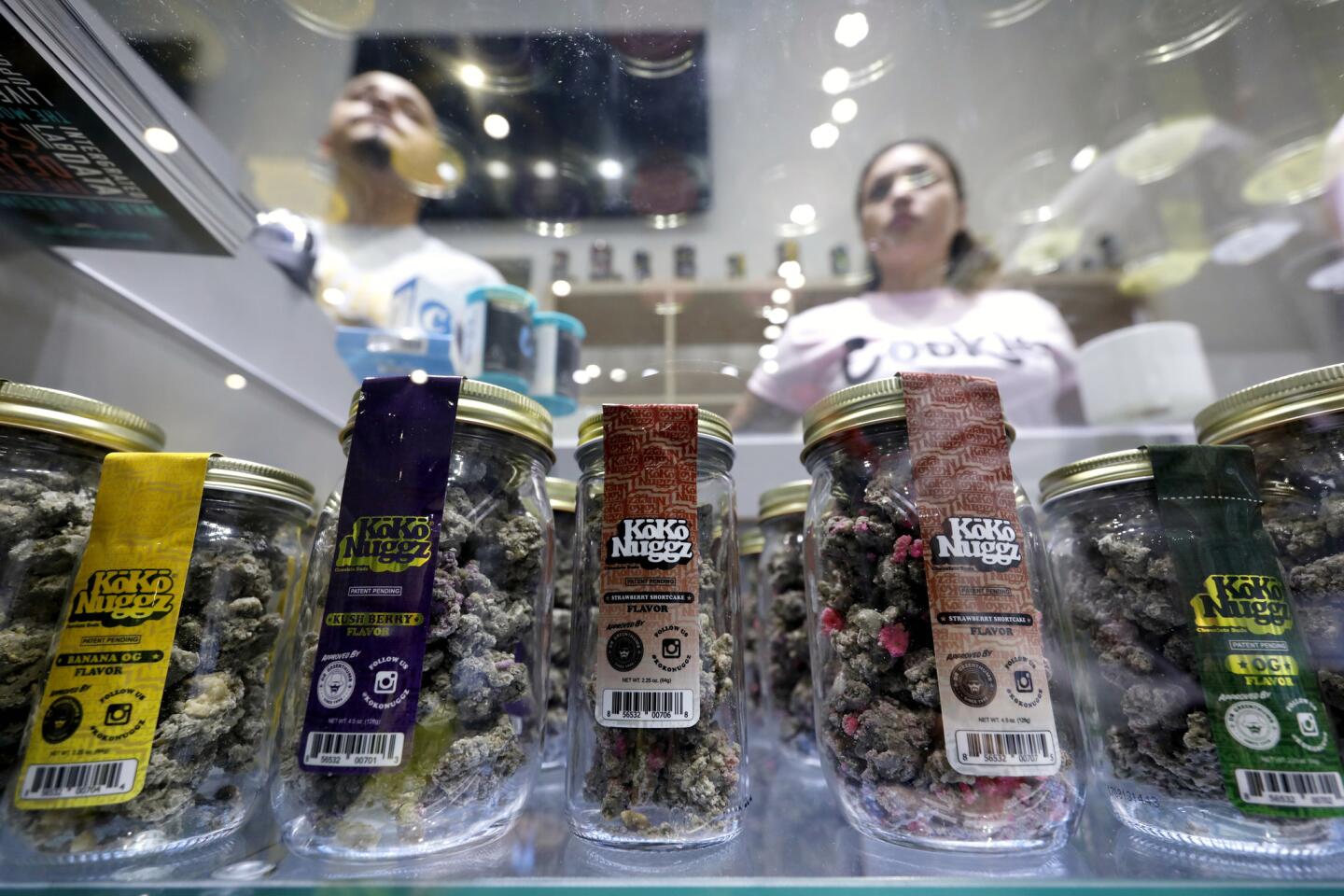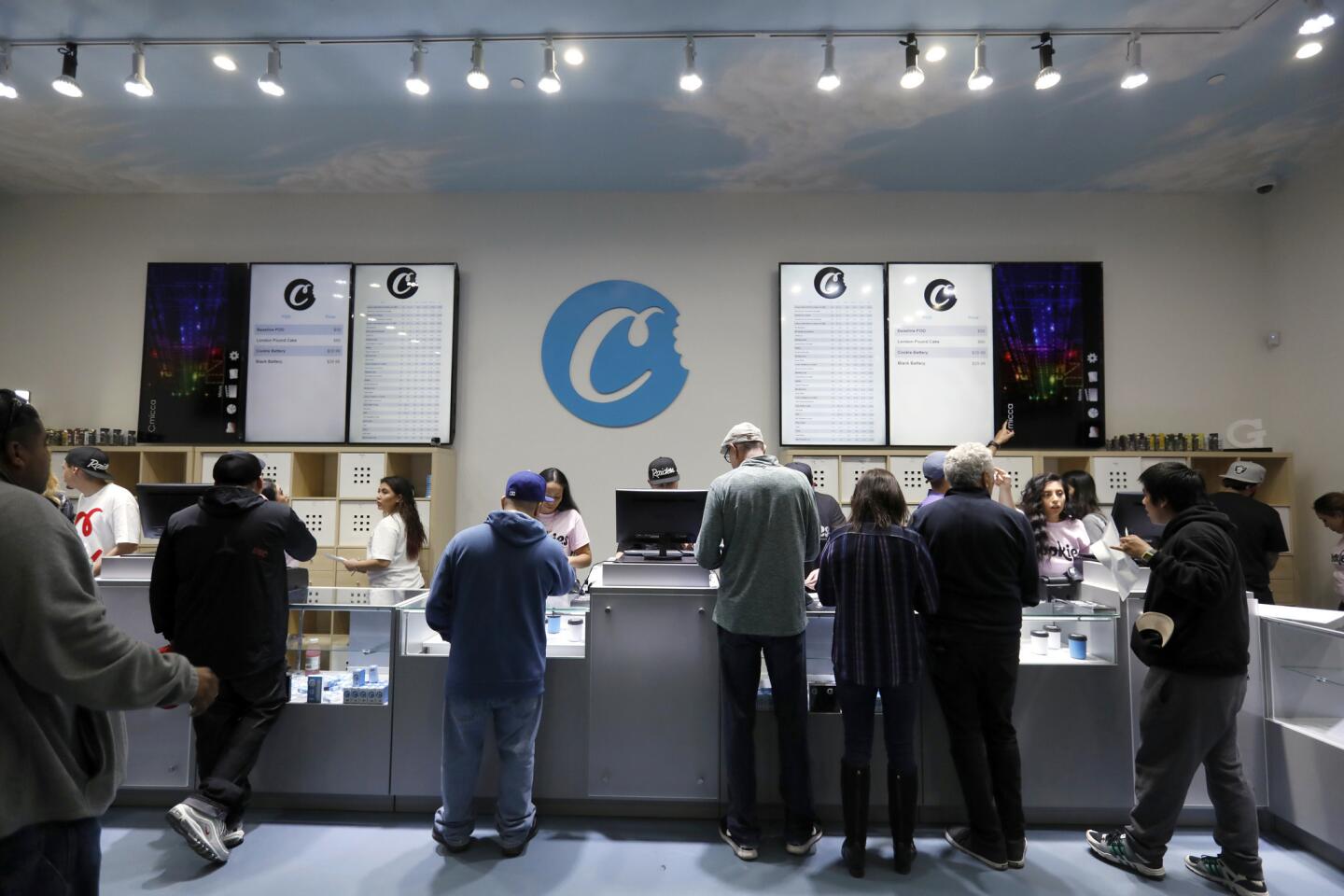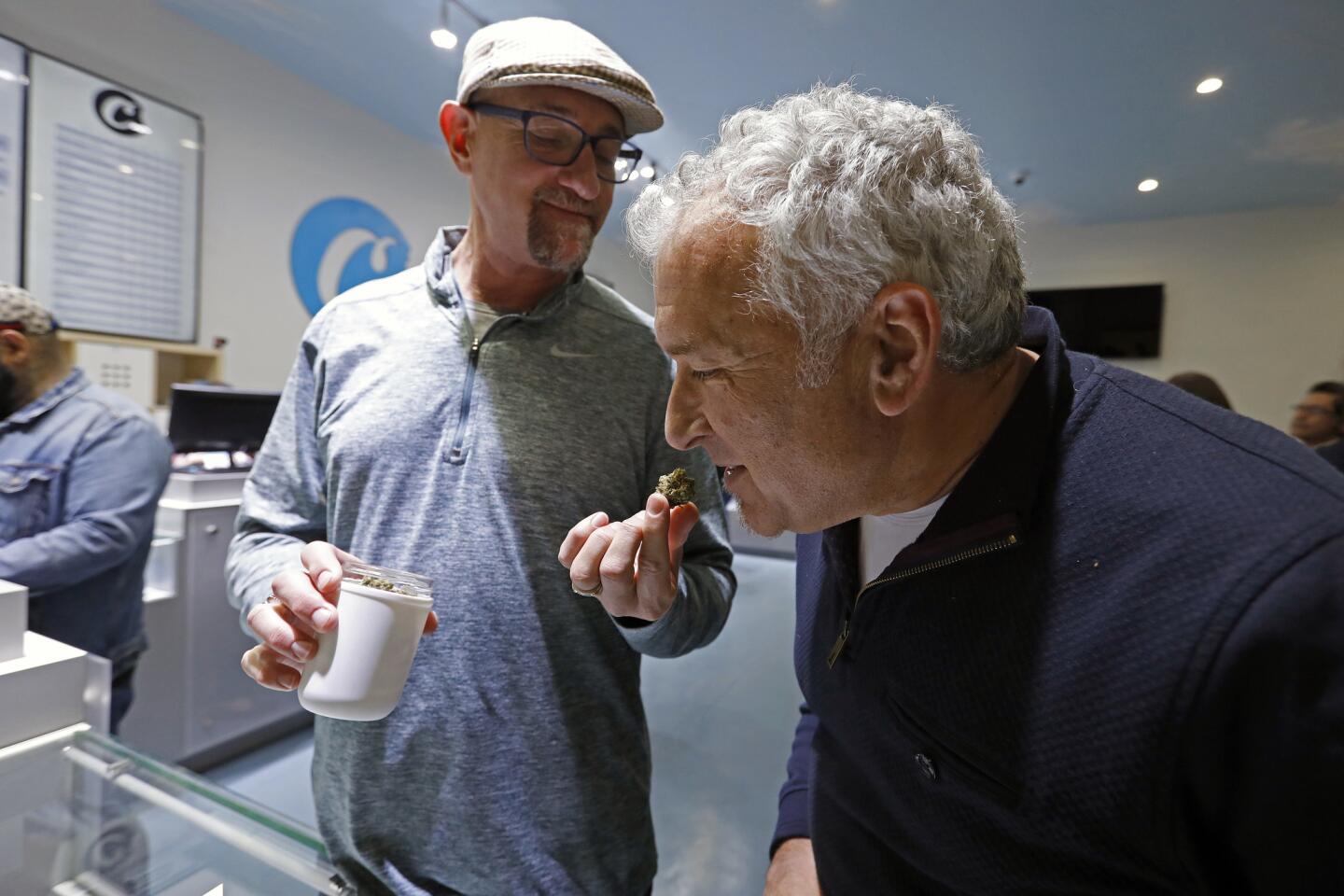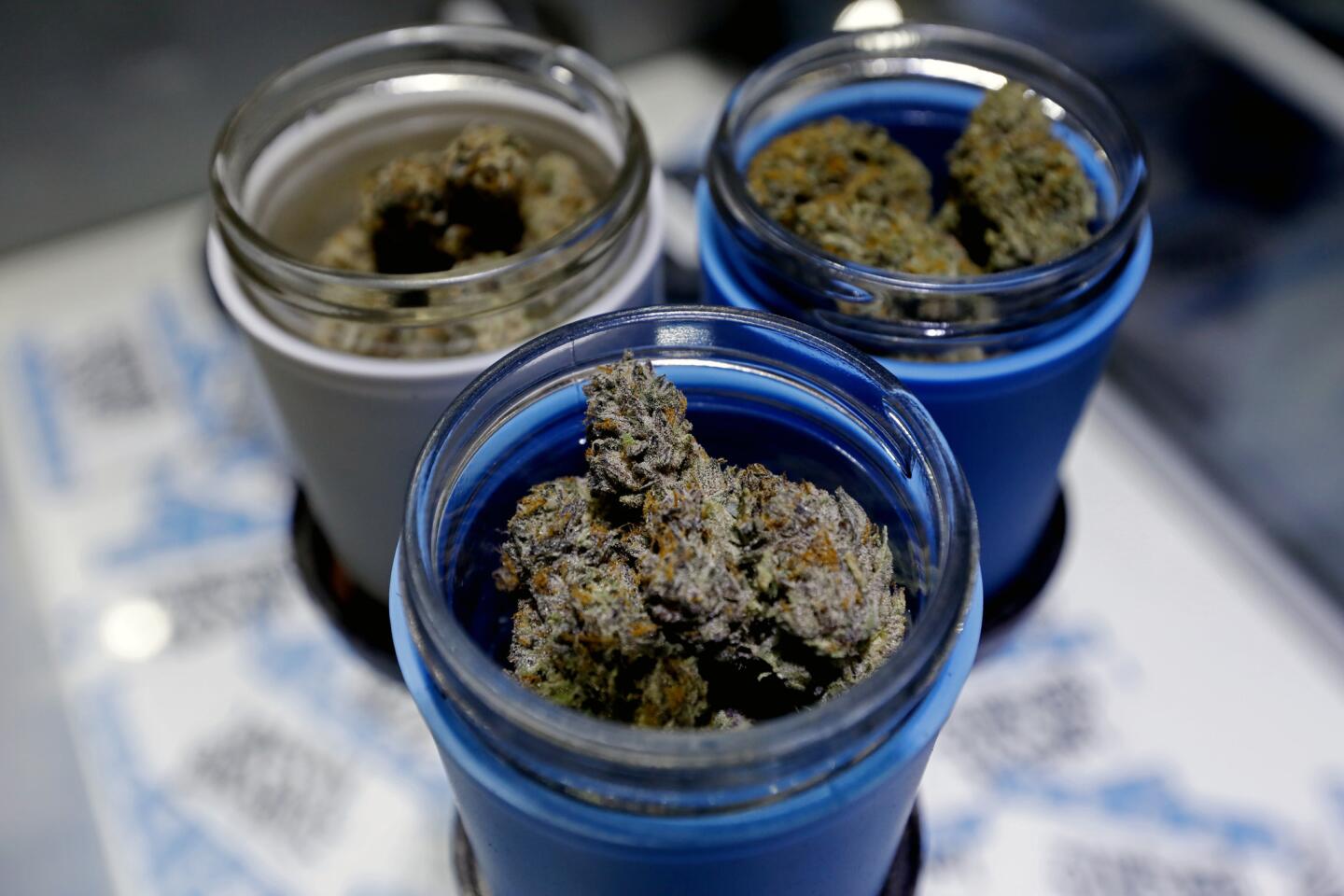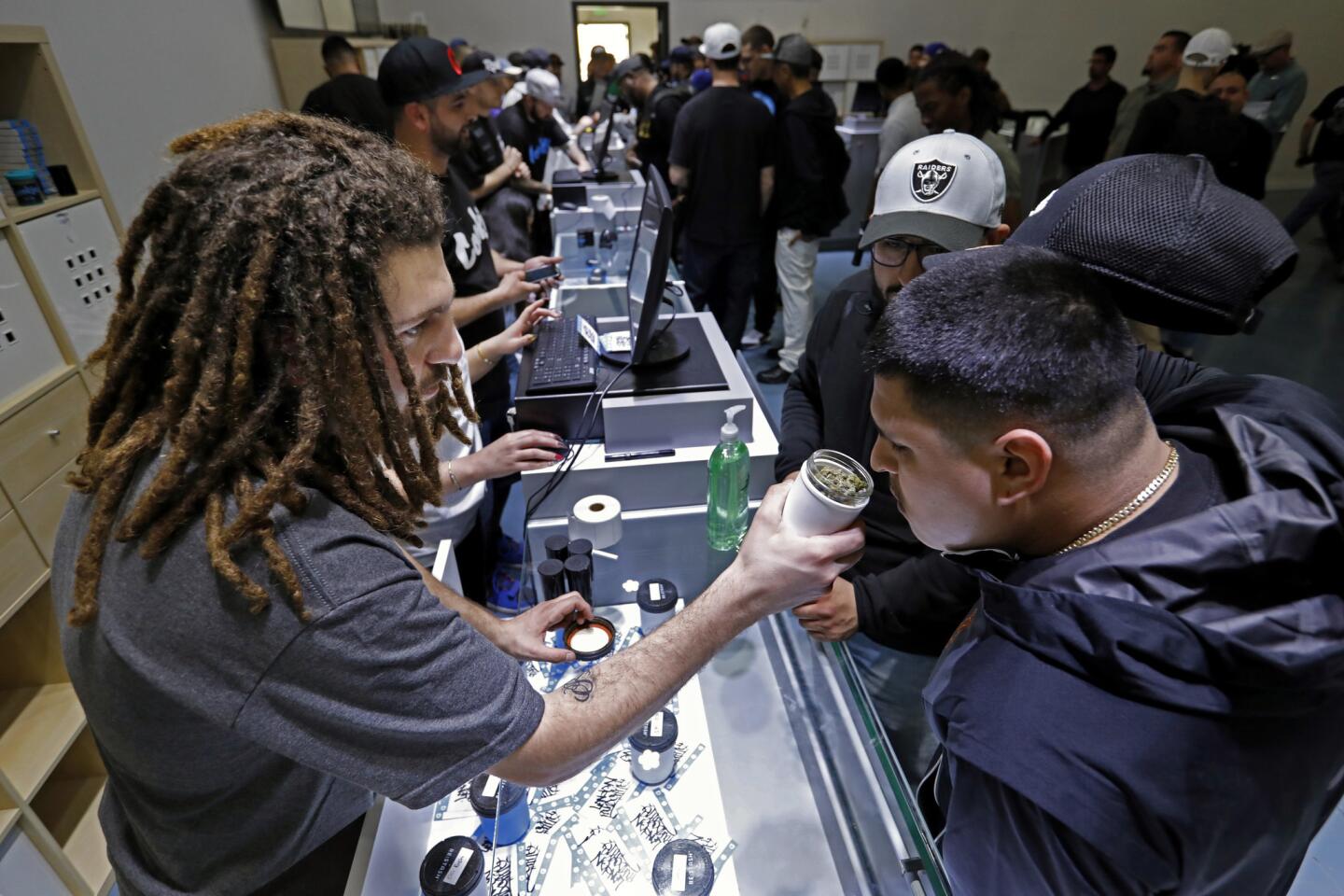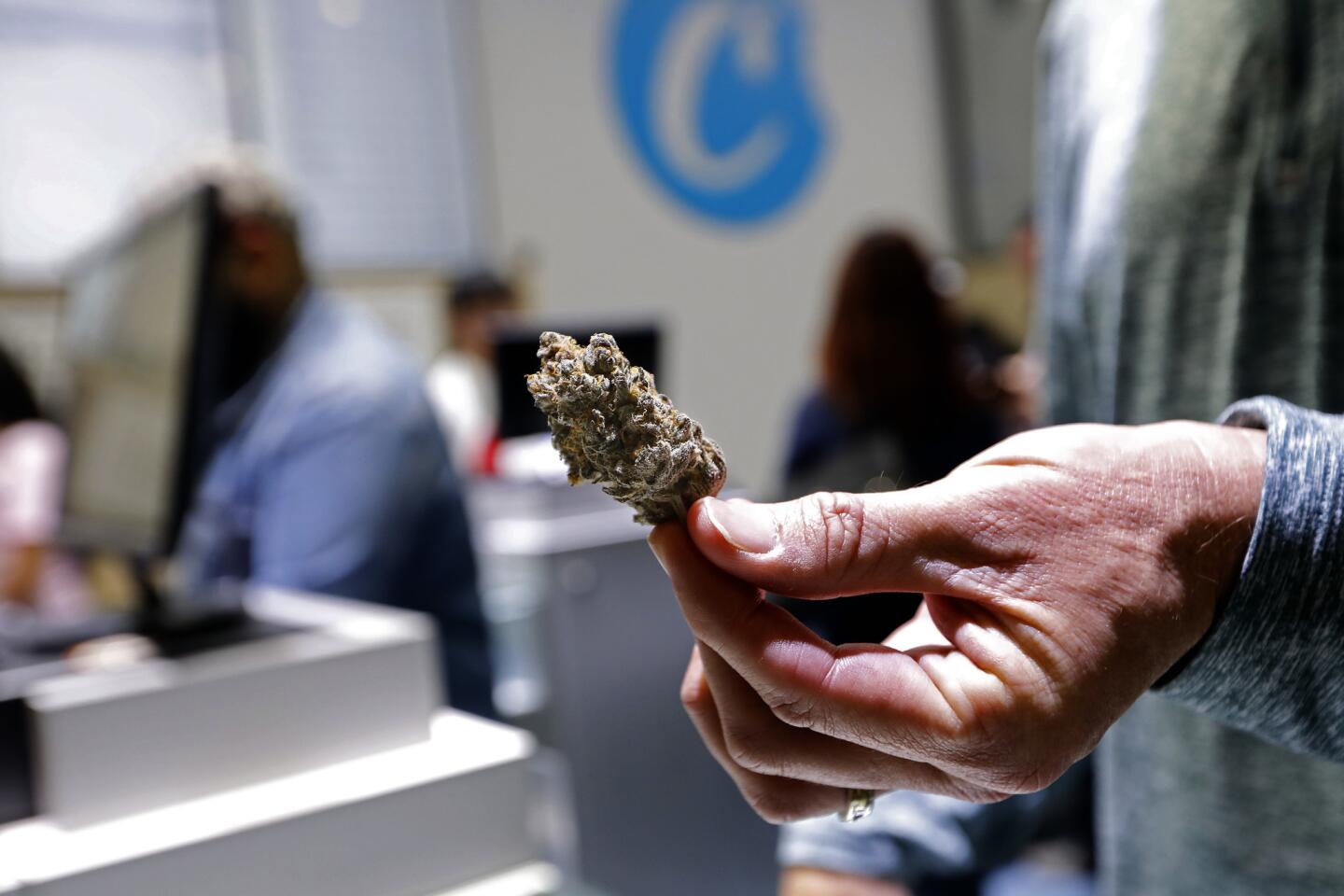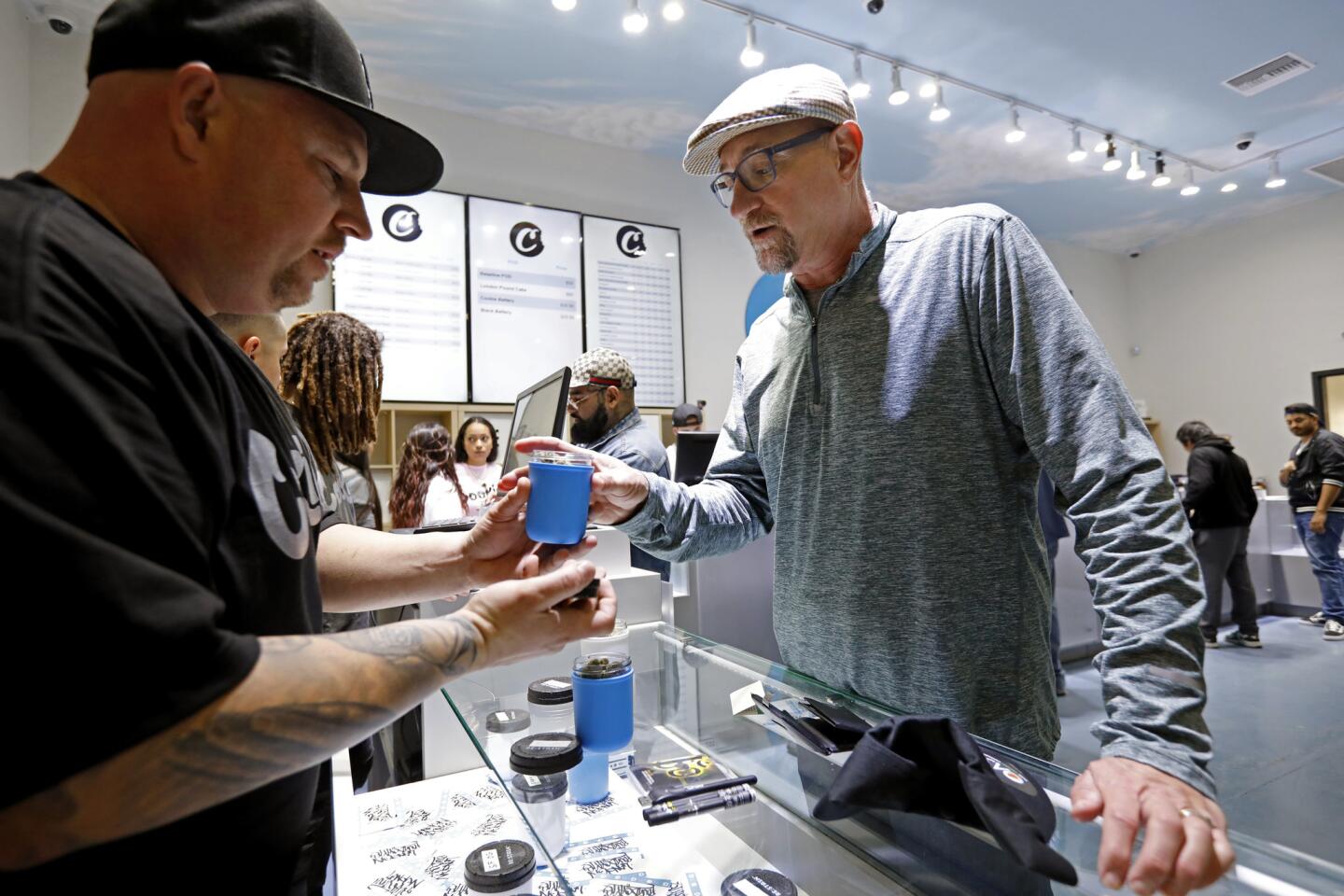Maywood officials celebrate revenue potential as recreational pot shop opens
Outside of Maywood’s first recreational marijuana dispensary, people stood in a long line that snaked along the building and into a parking lot, where it found the perfect prescription for a raging case of the munchies.
Free tacos.
The taco truck was just part of the fanfare to celebrate the opening Tuesday of Cookies Los Angeles — and the dawn of legal recreational pot use in the small city in southeast L.A. County.
By noon, hundreds of people from all over Southern California had made the pilgrimage.
“I hope it betters our city,” Maywood resident Kent Villa said. “I hope it increases revenue and gives more job opportunities.”
The 23-year-old stood in line with his brother at 8 a.m. to be one of the first people to get into the store. The pair, who live down the street from the dispensary, said they want to see tax money from sales go toward building playgrounds for children in the community and keeping the YMCA open.
Californians voted to legalize recreational marijuana in 2016, and the historic law permitting such businesses took effect New Year’s Day — creating the largest legal pot market in the country. Hundreds of businesses have applied for temporary licenses, but industry officials expect a slow rollout as many cities have not yet given their approval.
“The reason you see this business opening in Maywood is I see an opportunity for employment for people in the community,” said Maywood Mayor Ramon Medina, who oversaw the green ribbon cutting ceremony earlier Tuesday.
The development agreement between Cookies Los Angeles and Maywood is a direct 6% tax, which officials say will generate millions of dollars in revenue and provide funds for city services and programs for residents.
Medina said he was initially opposed to the idea of recreational marijuana sales, but when he saw the business opportunity, he couldn’t let it pass by.
The city has already collected about $270,000 in license application fees for its marijuana businesses, city spokesman Robert Alaniz said. Five companies have received a total of 12 licenses, he said.
Outside the dispensary, occasional puffs of smoke arose from patches in the line as people took drags from their vapes. A parked Ferrari was covered in a marijuana leaf decal.
Nicholas Casadona said he came to the opening because of the reputation of Cookies, a San Francisco Bay Area pot brand.
“Get it from the people who cultivate,” Casadona, 24, said as he stood in line. “I definitely feel safer not having to go to someone random on the street.… It’s professional, and I think that’s what people want.”
Inside the store’s lobby, Nora Elias said she was “really hyped” to come check out the shop’s offerings. She heard about the dispensary’s opening through social media.
Elias said she thinks legalizing recreational use will make smoking safer. She pointed to new freeway signs that say “Drive high, get a DUI” as proof.
She said she also wants to show that smoking pot doesn’t make everyone sluggish.
“I’m pre-med,” Elias, 23, said. “It’s not true that stoners are lazy.”
Maywood may present a preview of the challenges for cities small and large of negotiating the contours of a controversial industry without full support from the community.
The city has a long history of mismanagement and questionable financial dealings.
A 2016 state audit said Maywood could face financial collapse, with $16 million in debt that it could not repay. The predominately working-class city south of downtown Los Angeles came close to bankruptcy in 2010 as well, at a time when it also became involved in a major municipal corruption scandal in the neighboring city of Bell.
Medina said the city’s problems with mismanagement are in the past. Maywood is repaying its debt, he said, adding that marijuana revenues would “of course” help pay back what’s owed.
“We are really paying attention to money coming in,” he said. “We are in a different situation.”
Across the street from the towering dispensary, Francisca de la Cruz leaned on the fence of her frontyard and lwatched the festivities. The 57-year-old, who has lived in Maywood for 20 years, said she doesn’t support marijuana sales.
“This isn’t good,” she said. “It’s immoral.”
De la Cruz said she was worried about the shop’s location on Maywood Avenue, which is across the street from a residential neighborhood and a block from Loma Vista Elementary School.
“Our community needs to be clean of this, for our children,” she said. “The truth is that this is a drug.”
Medina said he would work with residents opposed to recreational marijuana use and hear their concerns. Officials need to ensure that manufacturing and sales are stringently regulated, he said, and that minors don’t have access to any marijuana products.
“I hope they understand that this was a hard decision to make,” Medina said. “But I did it for the community.”
More to Read
Sign up for Essential California
The most important California stories and recommendations in your inbox every morning.
You may occasionally receive promotional content from the Los Angeles Times.
